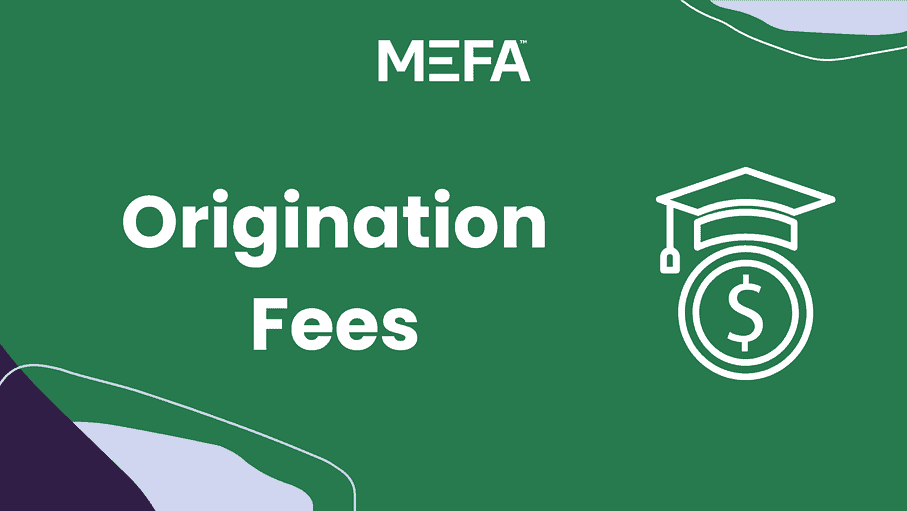If you’re considering borrowing a loan to pay for college, make sure to look at any additional fees you may be charged. One common fee is the origination fee, a one-time fee charged to the borrower for the cost of processing the loan. Learn more about wise borrowing in our Comparing College Loan Options webinar.
Please note that this transcript was auto-generated. We apologize for any minor errors in spelling or grammar.
Jonathan here at MEFA, and I wanna tell you about origination fees. You see interest isn’t the only number you have to look at when you’re comparing college loans. Many parents are so focused on getting the lowest rates that they often overlook the fine print, and some lenders have additional fees that can increase the overall cost of borrowing.
One fee that’s commonly overlooked is the origination fee. So what is an origination fee? It’s a one-time fee charged to the borrower for the cost of processing the loan. Again, some lenders have them, some don’t. As an example, many parents consider borrowing the Federal Plus loan to help cover their college bill.
The plus loan charges a 4.228% origination fee on each loan. What does that mean for you? It means that 4.228% of the amount that you borrow will be withheld from the payment that goes to the college. [00:01:00] So if you borrow a $10,000 plus loan, the college will only receive a little less than $9,600 once the origination fee has been removed, which means that you’ll need to make up the difference and increase the amount that you borrow in order to cover the origination fee.
In comparison, if you borrow a $10,000 loan from a lender that doesn’t charge an origination fee like nefa, the college will receive the full amount. Requested to learn more about comparing college loans and ask any questions on paying the college bill, here’s where you can find us.













